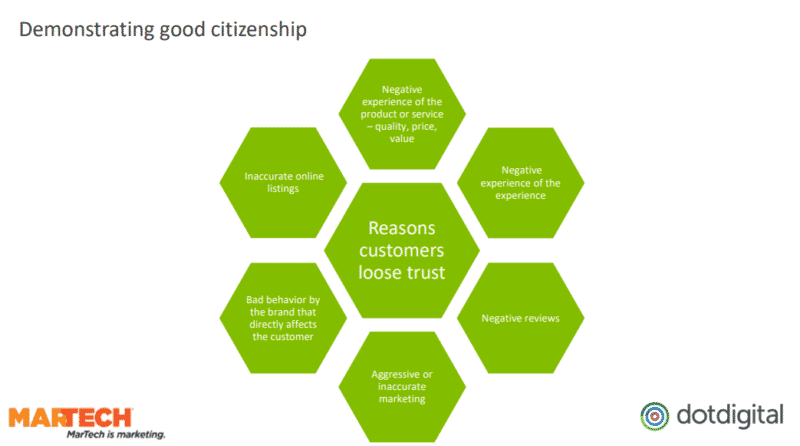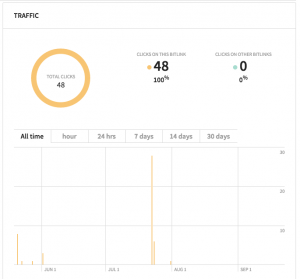Implementing a responsible data infrastructure will better serve customers who want everything now.
“More and more brands from around the world are discussing responsible marketing and striving to embody it,” said Frank Brooks, Head of EMEA Marketing at marketing automation company dotdigital, at our recent MarTech conference.
To build trust with customers, organizations need to be consistent with their marketing practices and communicate that they are being responsible.
“Responsible marketing is ensuring you’re not just doing things for the sake of doing it by the book; you’re going above and beyond to put your customers first to think about the wider impact your marketing has and what it says about your business and the way it operates,” Brooks said. “Responsible marketing is an approach that ensures you’re not just meeting customers’ needs, but you’re also having a positive impact on the community that you’re both a part of.”
More digital than ever
Because of the pandemic and the digital transformation that was accelerated by it, customers are engaging with brands online more than ever.
This raises new challenges for marketers because the capabilities of current technologies have overtaken the limitations of earlier processes that were built for a more permissive marketing environment. Now, marketers have to establish a relationship with a customer not only to sell them products, but to serve them ads and emails.
“The key to establishing responsible marketing is putting the customer at the center of everything a brand does, both in its communications to the wider world but also to each customer,” said Brooks. “This is determined by having the data that reveals each customer’s behavior and preferences as a platform for personalized communications, while still ensuring that you’re ahead of compliance and regulatory changes.”
He added, “The business should operate responsibly and show care and respect for the data they hold on customers, while the customer receives a more rewarding experience powered by personalization to grow loyalty and lifetime value.”
Trust in decline
“Trust declined in customers using search engines, traditional media, owned media and social media between 2019 and 2021, and there are many reasons why customers lose trust in a brand, such as negative experience of the product or service,” said Brooks.

Each company has to be aware of the downward trend, and consider what practices they can change to show they are responsible. They should also meet customers’ needs when they demand to see a company’s environmental impact.
“Research by Kantar shows that sustainability is more important to global customers since the COVID pandemic, while 65% of respondents to a survey stated that climate change needs to be prioritized after COVID,” Brooks said. “That’s a huge figure in our research. We found that 20% wanted to hear more about how a brand was supporting charitable causes, while 23% wanted to know what a business was doing to be more sustainable.”
The “now customer”
The relationship between a company and the environment is important. So is the personal relationship with customers. It comes down to a balance between personalization and security. Customers demand both.
In dotdigital’s own research, they found that customers wouldn’t mind giving up the data if the online experience is made more personal, said Brooks.
“So there is still great appetite [for a personalized experience], even though there might be some trepidation,” he stated.
We are now in the era of the “now customer,” who wants real-time relevant messages. This opens the door for brands to offer value in exchange for data to ensure that messages are useful to customers.
It all comes down to communicating with customers that their privacy and data are protected and won’t be misused by organizations.
“Companies should build an infrastructure that protects what stakeholders value most, while proactively detecting threats in the domains of cyber security,” said Brooks. “Without this infrastructure, companies risk the market value of their brand and a possible decline in customer loyalty and bad PR.”
The post How responsible marketing impacts customer retention and value appeared first on MarTech.
(45)
Report Post








